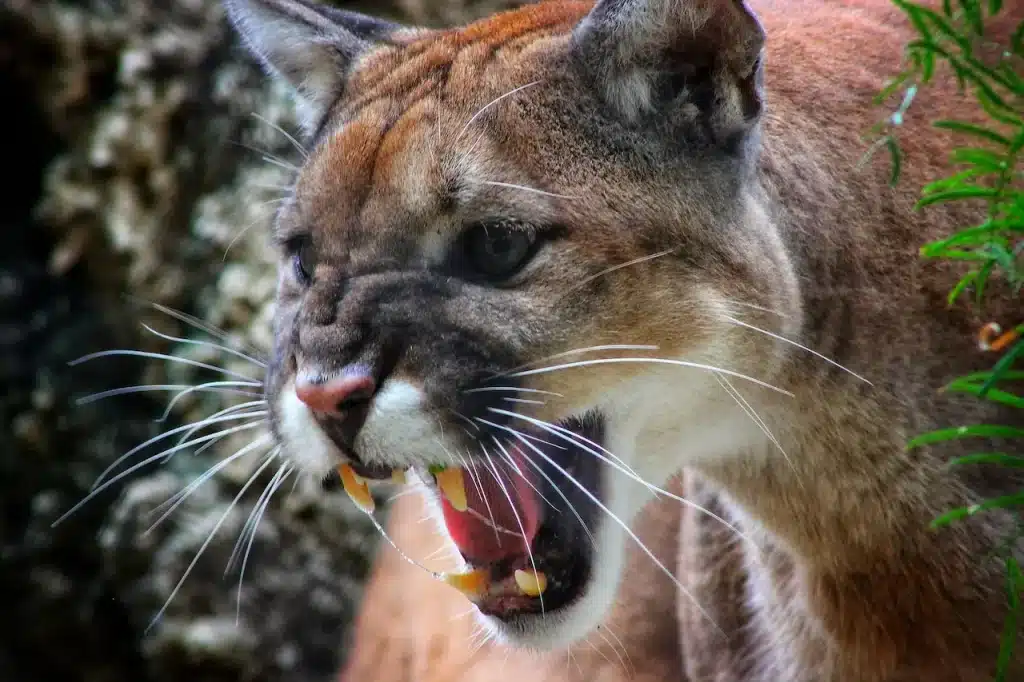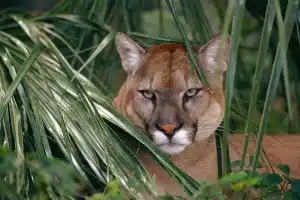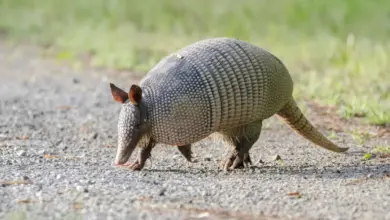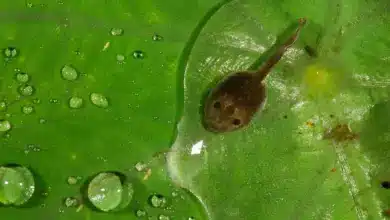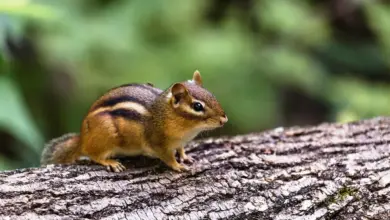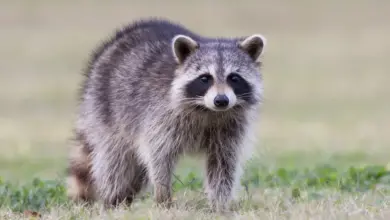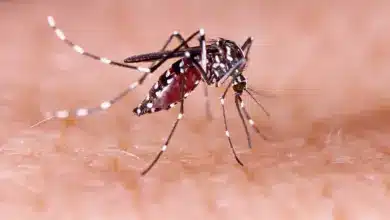What Eats A Cougar?
What Eats A Cougar? What Do Cougars Eat?
Cougars are large felids native to North America. They can also be called mountain lions, pumas, panthers, or even catamounts. The cougar is an apex-predator and has very few natural enemies.
There are certain animals who prey upon cougars. This is usually when they are weak, like cubs and sick/injured adult cougars.
This comprehensive article will examine what the cougar eats, as well as its diet and eating habits.
What eats Cougars? Cougars are natural predators
While cougars are apex predators in the natural food chain and do not have any natural enemies, they may be preyed upon by certain animals.
Other Cougars
Cougars can be territorial and solitary. Residents cougars defend their territory against other cougars.
In some cases, territorial conflicts between adult males and females may result in death. Cougars that are younger or less strong will usually retreat from aggression.
When they attempt to set up their territory, young cougars who are newly independent may also be chased away or killed by resident adult cougars. The mortality rate for transient juvenile cougars is higher until they establish their own territory.
In addition to territorial fights, cougars that reside in the area have been reported to attack and kill cougars from outside, including those of the opposing gender. Other members of the same species can pose a threat to cougars in certain situations.
Gray Wolves
A pack of five to six gray wolves is capable of hunting a single cougar in a cooperative manner. This can be especially effective if the wolves ambush their prey. These incidents are rare, but they do happen.
When the chance presents itself, wolves are known to take out cougar cubs or sick or injured adults cougars.
In areas with both predators, the presence of wolves can also limit cougar populations and their distribution. The wolves are territorial, and they will chase off any intruder. Cougars stay away from wolf packs, and avoid zones where there are high densities of wolves.
Bears
Grizzly and other bears may attack cougar cubs that are unprotected. The male cougars don’t help raise the cubs so the mother can’t defend them all at once against a bear.
The grizzly bears are also known to steal the carcasses from adult cougars’ cached prey. In most cases, adult cougars will retreat from grizzlys after a confrontation.
Other predators
Other carnivores such as coyotes and bobcats can also prey upon cougars cubs when they are left unattended. These attacks still occur infrequently, but they can happen if the mother goes hunting. Adult cougars that are sick or injured can also be more vulnerable to attack by these smaller predators.
Some large raptors like the golden eagle can also pose a threat to cubs. A few eagles have been reported to attack and kill unattended cubs. Some big predators, such as owls, may prey upon very young cubs.
What do Cougars eat?
Cougars are carnivores who only eat meat. Cougars are top predators that have a large hunting area and can adapt to any situation. They eat large ungulates such as deer, elks, mountain goats and sheep.
They also supplement with small mammals such as raccoons and coyotes. We’ll take a look at the cougars’ varied diet and hunting methods.
Primary Prey: Large Mammals
Deer
The main bulk of the cougar’s diet is deer. Around 60-80% are elk, mule deer and white-tailed elk. Cougars prefer to hunt mule-deer in some places where both elk (and mule-deer) are present.
Cougars are expert deer hunters. The cougars are expert deer hunters. They are not only interested in adult deer but also fawns and physically weaker or elderly deer. Cougars are solitary creatures that stalk and ambush deer in a lonesome manner. Camouflage and stealth are used to approach their prey without alarming it.
The cougar’s killing bite is usually delivered at the base the skull of the deer, causing the spinal cord to snap and cause a rapid death. Canine teeth can penetrate the spine directly from the vertebrae of the neck. Then, it drags the carcass away or carries it using powerful neck and jaw muscles. This allows them to consume this massive body safely from view of other predators.
Bighorn Sheep
Cougars are more likely to hunt bighorn sheep in some parts of Western North America than deer. Predators prey on young sheep and rams that are not fully mature. A large cougar is able to take down an adult bighorn, even though it can weigh up to 300 pounds.
The cougar uses their rock-climbing skills to ambush and stalk bighorns on steep, rocky terrain. The tan color of their coats makes them a perfect camouflage for rocks with similar colors. Cougars can still attack bighorns who live in high ledges or cliffs.
Mountain Goats
Cougars also prey upon mountain goats where they live in coexistence. The cougars will take both adults and children. Cougars use ambush techniques to take out solitary mountain goats in steep terrain. Rock climbing ability allows the cougar to reach areas where mountain goats are relatively protected.
Second Prey: Small and Medium Sized Mammals
Despite the fact that large ungulates are their main food, they supplement this diet with smaller mammal species. They include:
- Coyotes and raccoons are small canids.
- Rodents: Porcupines, beavers, prairie dogs, marmots and ground squirrels
- Jackrabbits (also called snowshoe Hares), eastern cottontails, brush rabbits etc.
- Carnivores like raccoons, ringtails, skunks etc.
Small mammals may make up a large part of a cougar’s diet, depending on the location and available prey. The smaller prey is what cougar juveniles hunt before they move on to larger game.
The small prey helps to stabilize the population of large mammals. Cougars are able to control the coyote population and compete for small mammal food.
Alternative Food Sources
Livestock
Cougars are known to attack livestock and domesticated animals in areas where there is human settlement. This includes cattle, sheep and goats. They may also target horses, pigs, llamas and alpacas. They usually prey upon young foals, calves and colts. The attacks on older livestock is rare, but does occur.
Cougars and humans are often involved in such incidents. Most of the time, cougars are attracted to livestock because they can adapt to the abundance. Such attacks can be mitigated by using effective predator-proof enclosures for livestock and other methods of deterrence.
Carrion
The cougar readily consumes carrion or animal carcasses that have been killed by predators such as wolves, bears, and coyotes. They maximize their calorie intake and minimize energy expenditure by scavenging. They will often evict other predators to their kill.
The conclusion of the article is:
Cougars are powerful, versatile predators that occupy a crucial ecological niche within their habitat. The cougar is a powerful and versatile apex predator that occupies a vital ecological niche in its habitat.
Understanding its predatory adaptations and interactions can provide critical insight into the workings of food webs.
It is vital to ensure the viability of Cougar populations by ensuring wildlife corridors and habitats are connected, hunting regulations, and protecting reserves.

